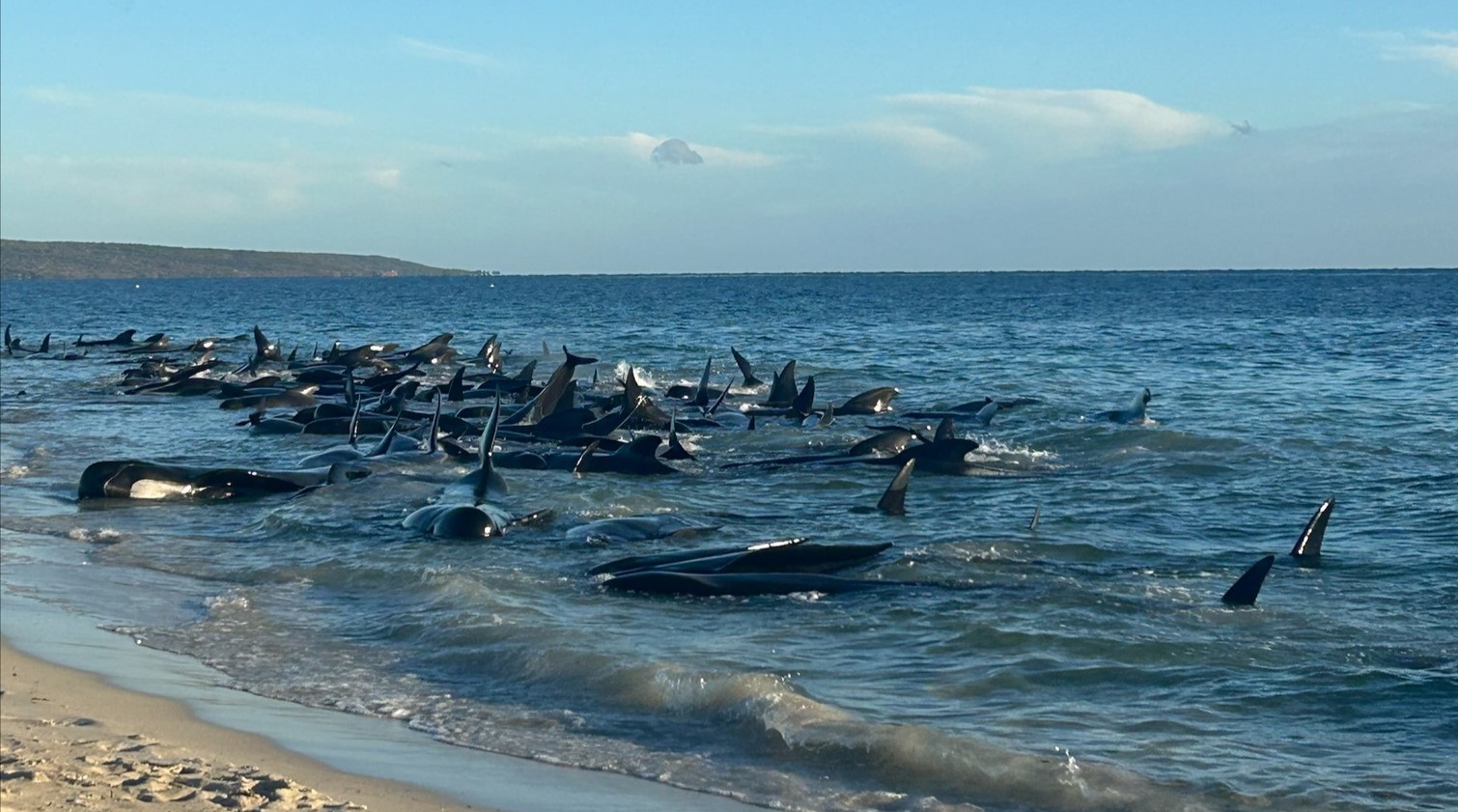Expert Reaction
These comments have been collated by the Science Media Centre to provide a variety of expert perspectives on this issue. Feel free to use these quotes in your stories. Views expressed are the personal opinions of the experts named. They do not represent the views of the SMC or any other organisation unless specifically stated.
Dr Joshua Smith is a marine biologist and Senior Research Associate at Murdoch University
We've had stranding events for many, many decades unfortunately, all the way around Australia, and they do seem to be in relatively similar places . . . and southwest Western Australia is certainly not unique to this.
What’s unique about this area geographically is really the relatively shallow waters that it has and the long, sloping seabeds.
It’s something like two meters for every kilometre... a gradual two metre increase every kilometre within the bay, which [is problematic] for these species that are typically found in deeper waters - that rely heavily on echolocation, which is basically their own little form of sonar.
That's how they image their environment, that's how they navigate, they're very highly acoustic animals, as most of the marine mammals are.
Why do whales beach themselves?
There are several theories about mass whale strandings.
We know that whales can come unstuck on long, gradual, sloping seabeds – like those in Geographe Bay - where a navigational error suddenly puts them in shallow water.
Given they are in the same area as WA’s largest mass stranding event in 1996, it is possible that the topography of the seabed has confused the whales, however there are many other possible causes, particularly as pilot whales strand more than any other whale species.
They are extremely sociable animals and have tight-knit networks, often travelling in familial groups.
If something is wrong, they’ll stick together and help each other out - they tend not to leave individuals to their own fate.
The whales may have been protecting a sick individual, or they could have been sheltering from predators, namely orca, in the safety of the bay. But you would expect there to have been orca sightings if that were the case.
Another theory is that strandings are a response to sonar noises from deep water vessels, but with the whales being in shallow coastal waters, it is unlikely those noises could have reached them.
But the truth is, this case is like every other mass stranding – despite our research, we still don’t know why they do it.
Can the whales be saved?
It is possible to save the whales, but it will be difficult and we know some have already died. It is critical they get back out to sea within 24 hours although within 12 hours is best.
Sadly, even if you get them back out to sea, they may still suffer internal organ failure and die.
Whales evolved to live in the water, they are massive animals, with long-finned pilot whales weighing up to 2.5 tonnes each, and without buoyancy, basically their internal organs are being crushed.
Then you have the issue of pilot whales having such close social bonds, they might not want to leave the others on the beach - re-beaching is quite common.
Are mass whale strandings happening more often and is climate change having an impact?
It is important to remember that whales were stranding well before humans started impacting their environment.
But it does seem that mass whale strandings might be happening more often.
Climate change is definitely having an impact on whales, but it’s not likely it caused the stranding directly.
Although climate change is transforming our oceans, the impact is typically seen on a much larger spatial scale than individual stranding events.
Warming seas, changes to cold water currents or upwellings, and impacts on the distribution and abundance of whales’ prey have the potential to change the distribution patterns of whales across the world and may lead them to unsuitable locations that could cause strandings.



 Australia; WA
Australia; WA



